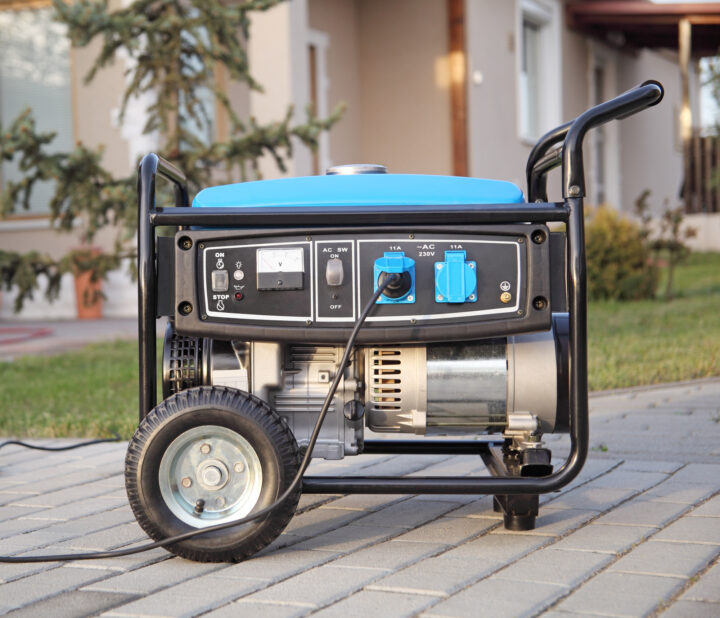7 Common Portable Generator Mistakes to Avoid for Homeowners
Did you know that America’s infrastructure grade has dropped to a D-?
Many factors contributed to this, but our aging electrical systems have played a major role. With this drop in grade, more of our assets are exposed.
Having equipment running on electricity that relies on a stable supply can be dangerous if there is a power outage. From a well-stocked home emergency kit to backup generators for your home and business, you need to make sure that your family and assets are safe.
But how do you avoid portable generator mistakes, especially if this is the first time that you’re using one? Keep reading to find out what those common mistakes are.

1. Don’t Overload the Generator
When using a portable generator, there are several mistakes that homeowners need to avoid in order to prevent damaging the unit or causing a safety hazard. One of the most common mistakes is overloading the generator.
This can happen if too many appliances or devices are plugged into the unit, or if the wattage of the devices exceeds the generator’s capacity. Overloading the generator can cause it to overheat, Shut Off, or even catch fire.
Therefore, it is important to be aware of the wattage of your devices and make sure not to exceed the generator’s capacity. Another mistake to avoid is using extension cords that are too long or too thin.
This can also cause the generator to overheat and shut off. Therefore, it is important to use the proper size generator extension cords and not exceed the recommended length.
Lastly, be sure to keep the generator in a well-ventilated area to prevent it from overheating. By following these simple tips, you can avoid damaging your portable generator and keep it running smoothly.
2. Don’t Use the Wrong Fuel
While it may seem enticing to save a few bucks by using less costly fuel instead of premium, doing so may end up putting the gadget in danger and costing considerably more in the long run.
Injector clogging caused by contaminated gas can encourage microorganism growth and lower generator output.
If a generator has been inactive for a few months, the gas may have degraded. Run the machine on a regular basis to avoid this, empty the gas before utilizing a stored generator, or add a fuel stabilizer to keep the fuel fresh.
If you use propane or natural gas, check the gas lines for leaks on a regular basis to avoid an explosion and wasted fuel.
Gasoline is the most common portable generator fuel, but it can go bad quickly. If you use a gasoline generator, be sure to use fresh gas and check the expiration date.
Diesel generators are another option, but they can be more expensive to operate. If you use a diesel generator, be sure to use the correct type of oil and change it regularly.
3. Don’t Run the Generator in an Enclosed Space
Starting a generator from the garage or any place near the house is not recommended since the exhaust emits dangerous carbon monoxide.
Carbon monoxide is a quiet assassin. It has no odor and weighs more than air. It gradually fills the room, suffocating the individuals inside.
Outdoors, away from open doors and windows, is the ideal area to utilize a generator. A distance of at least 25 feet is generally deemed safe. Allow for a minimum of 5 feet of clearance all around the unit.
Never use a portable generator that has been stored in a garage to power it. Professionals should also put a stationary generator in an appropriate location.
Now that you know that you can’t run it in an enclosed space, having one in your house will not be a problem. And if you’re asking, “How to find Generac Dealer Near Me?”, you can check out good deals online.
4. Don’t Let the Generator get Wet
Whether it’s rain, snow, or just dew on the grass, moisture can damage the engine and electrical components. Water can cause serious problems, including shorting out the electrical system, rusting the engine, and more.
To avoid these issues, be sure to have protection for generators. Keep them dry and protected from the elements. If you must use it in wet conditions, be sure to cover it with a tarp or other material to keep it as dry as possible.
5. Don’t Forget to Test the Generator
This will ensure that the generator is working properly and that it is safe to use. To test the generator, simply connect it to a power source and turn it on.
If the generator does not start, check the fuel supply and the oil level. If the generator is working, let it run for a few minutes to make sure it is running smoothly. If you have any concerns, consult the generator’s user manual.
6. Don’t Use an Extension Cord
While it may seem like a convenient way to connect your generator to a power source, it can actually be very dangerous. Extension cords are not designed to handle the high power output of a generator and can easily overheat, catch fire, or even cause electrocution.
So, before you plug in your generator, be sure to check that the cord is rated for the proper amperage. If you’re not sure, ask a professional.
A 14-gauge outdoor grounded extension cable with GFCI capability is required for generators. Without it, electricity may flow in places where it should not, posing risks such as fire or electrocution.
Remember that old cables may be harmful, and the length of the cord, as well as the amperage of the load, can affect what the cord can really carry.
7. Know the Difference Between a Circuit and an Outlet
A circuit is a complete path from the power source to the load. An outlet is a receptacle where the circuit can be interrupted. If you’re not careful, you can overload circuits and cause fires.
Make sure you know the difference between a circuit and an outlet before using portable generators Singapore.
Beware of These Portable Generator Mistakes
Overall, there are many common portable generator mistakes that homeowners make. To avoid these mistakes, be sure to read the generator’s owner’s manual and follow all the safety guidelines.
Be careful not to overload the generator, and never refuel it while it is running. By following these simple tips, you can avoid common mistakes and keep your family safe.
Did you find this article helpful? You can check out our website for more awesome content like this.


